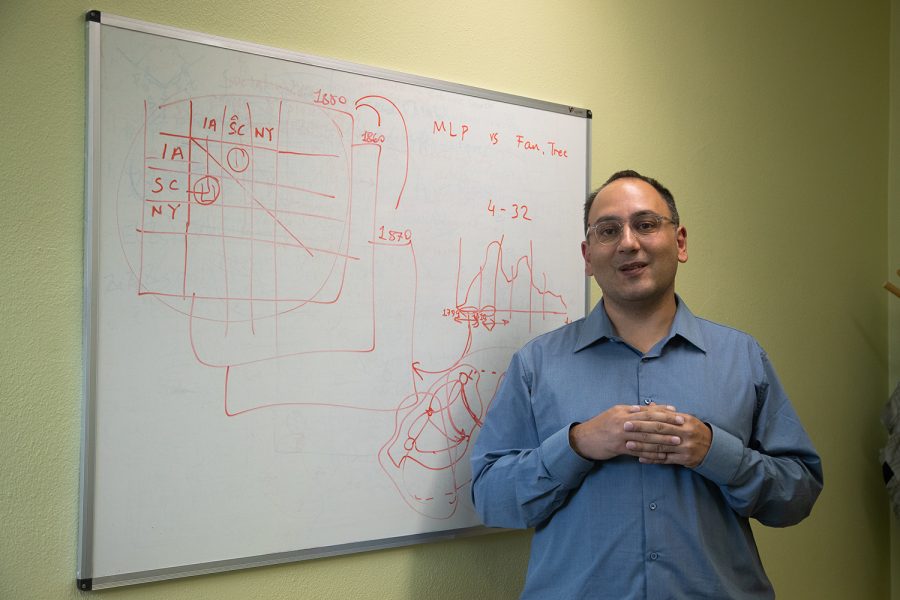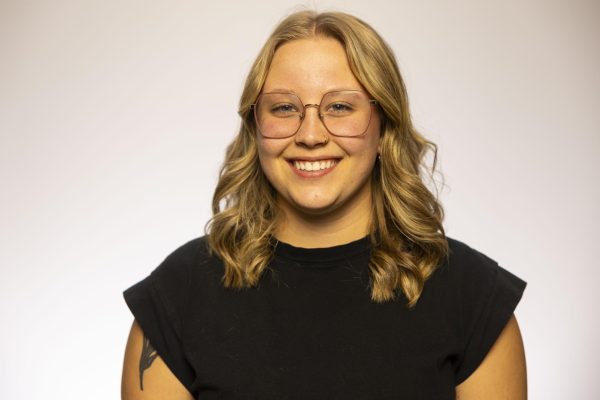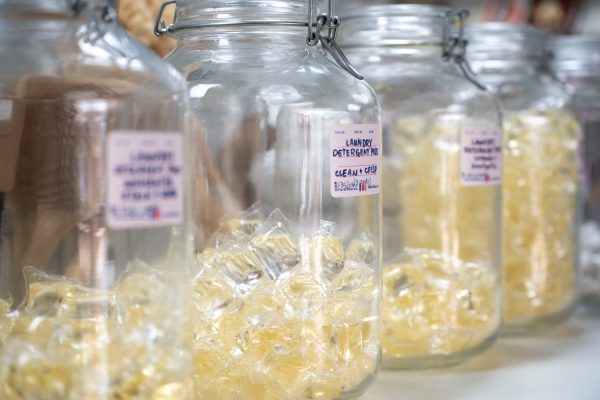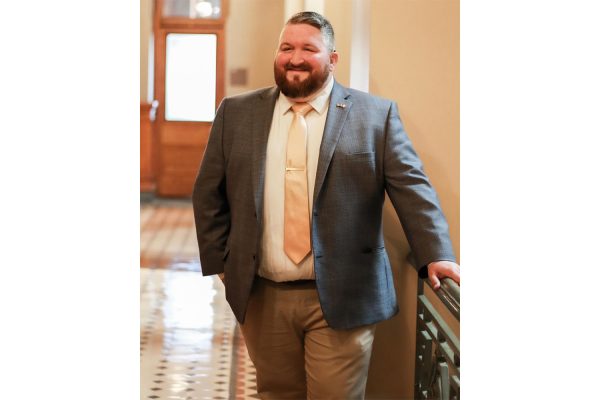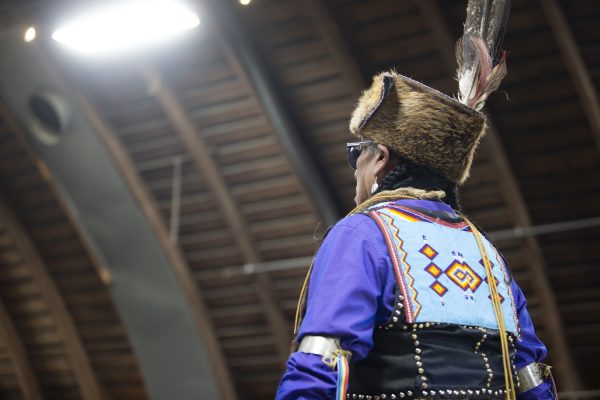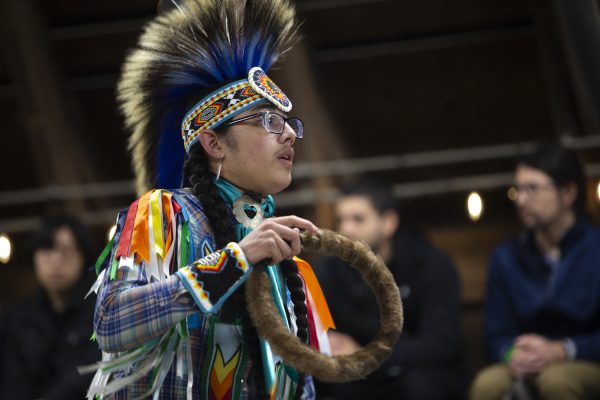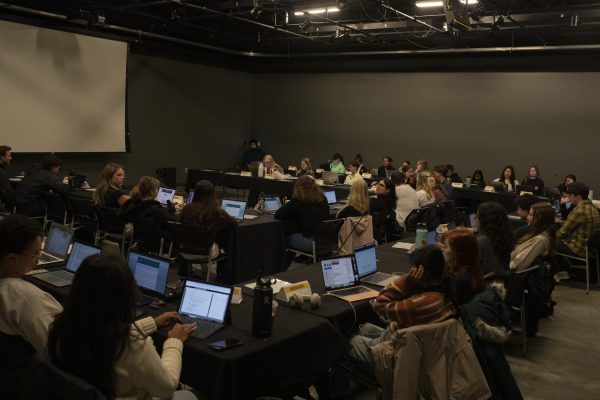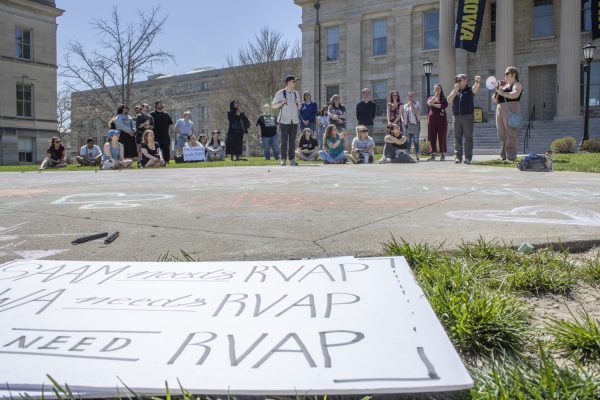UI assistant professor receives research grant to study human migration, family trees
Through the research, assistant professor Caglar Koylu hopes to follow the lineage of marginalized groups and create an educational tool for high school students to analyze migration.
Assistant Professor Caglar Koylu poses in front of a whiteboard mapping out part of his research on Friday, Sept. 23, 2022.
September 25, 2022
Caglar Koylu, an assistant professor in the University of Iowa’s Geographical and Sustainability Science Department, received a research grant to increase the information available about family lineage in the U.S.
His research will use the linked family trees to study how migration influenced the geographic proximity of kin over centuries. The three-year grant was awarded on Sept. 1 and is for $477,734.
Koylu said he linked around 40 million people to their family trees with the information he finds.
“I’m looking at kin proximity. This means, how close do individuals live to their relatives?” he said. “We want to eventually study how migration actually influences this whole evolution and characterization of kinship networks.”
Historically, family tree research has focused on European men because their familial information is the most consistently recorded, Koylu said. There is a lack of family tree data on underrepresented communities, and data on women may get lost because they sometimes change their names after marriage, he said.
Koylu said he hopes the research will fill the gaps in female and migrant family lineage.
RELATED: UI College of Dentistry faculty member Akimasa Tsujimoto awarded Nakao Foundation Research Grant
Koylu will work off the prior lineage of his mentor, University of Southern Carolina Professor of anthropology Alice Kasakoff, building off Kasakoff’s research to expand what is already known about migration.
“I’m just a consultant,” Kasakoff said. “I sort of come along for the ride and look at everything as it starts being produced and interpret the maps, and sometimes I write paragraphs about the importance of the research according to these interests.”
Kasakoff said she hopes the grant will allow Koylu to follow female lineage like never before.
“A lot of time, data is on men. But in the family trees we have at least some hope of linking a woman to her maiden name and reconstructing a whole life history of a woman,” she said.
Kasakoff said she is excited to see someone expand the work she has been doing throughout her career — especially someone skilled in map making.
“Having worked 35 years to create a database of nine families and each time trying to write my own computer programs and not being able to map them in a meaningful way, to find someone who is completely at ease with huge amounts of data and mapping techniques, I think it’s a very good partnership,” she said.
Koylu tracks family lines with flow maps made from public datasets, primarily Rootsweb, which allows people to upload their familial lineage. Using datasets like Rootsweb, he has created the largest family tree in the world, he said.
“Our work explains how to connect all these family trees together, and we generated to date the largest connected family tree in the world, which connects nearly 40 million individuals to one tree,” Koylu said.
During his research, Koylu plans to develop a new tool called Roots and Migrants, which will help students learn about the migrations of different groups.
“[Roots and Migrants] will be an educational and outreach tool to tell the story, from the data and our analysis, of how the European ancestors migrated and formed different kinship networks in the history of the United States, but also bringing the story alongside with people who are underrepresented,” Koylu said.
The research will include graduate, undergraduate, and high school students. Graduates and undergraduates will all aid in the development of the Roots and Migrants tool, while high school students will test Roots and Migrants as an educational tool, he said.
“We’re starting from Iowa City, doing workshops with social studies and science teachers in Iowa City high schools,” Koylu said. “We will work together to develop lesson plans using this tool, and we will also get input from the teachers to improve it.”
Editors note: The Daily Iowan spelled the name of Caglar Koylu, an assistant professor in the University of Iowa’s Geographical and Sustainability Science Department wrong in the cutline. The DI regrets this error.



